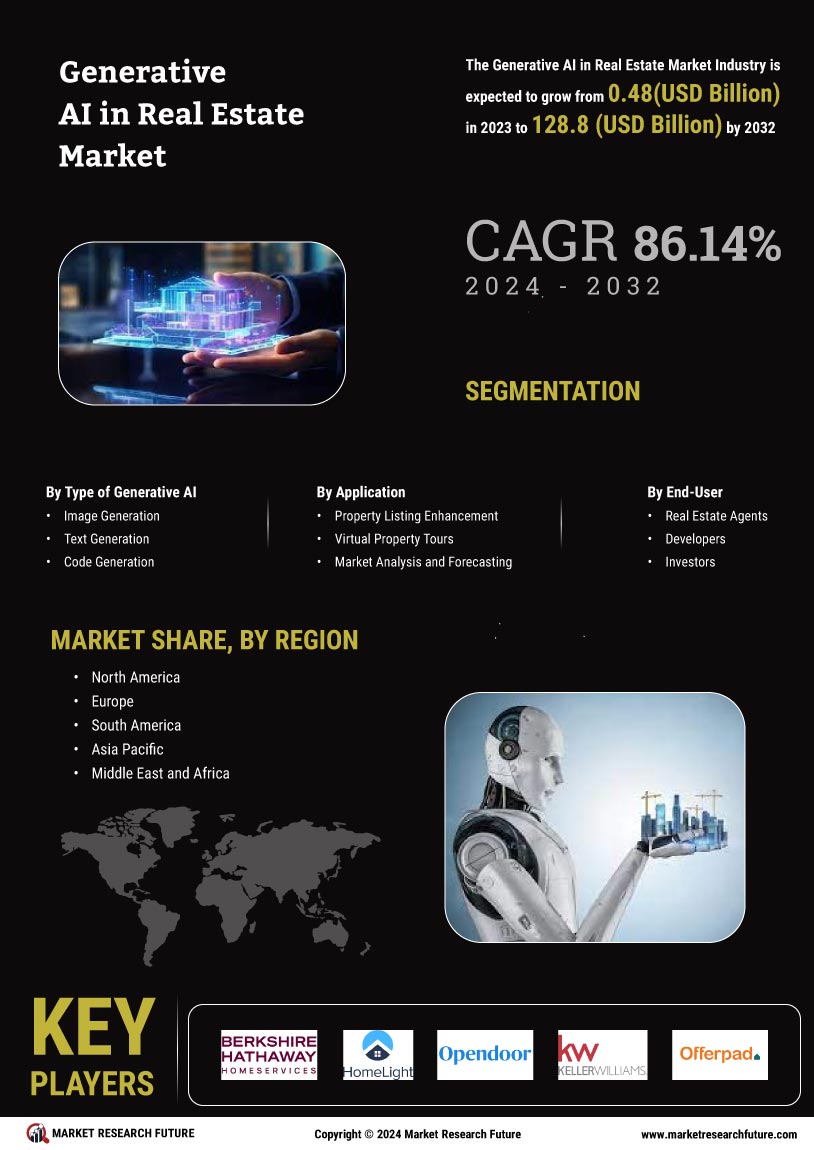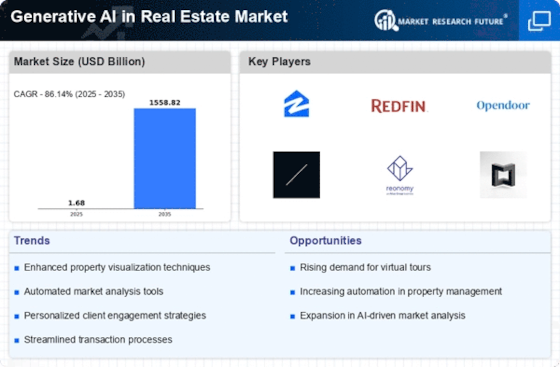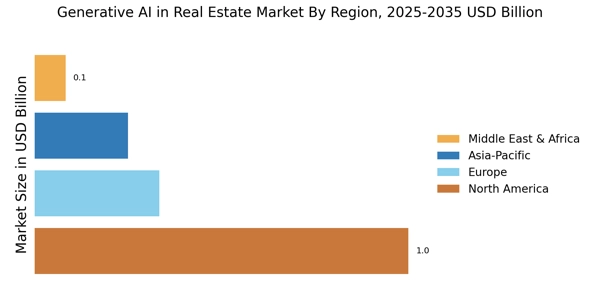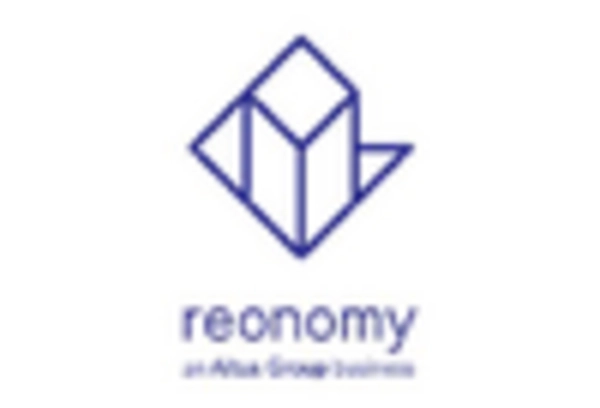Data-Driven Decision Making
The integration of Generative AI in Real Estate Market facilitates data-driven decision making, allowing stakeholders to analyze vast amounts of data efficiently. This technology enables real estate professionals to leverage predictive analytics, which can enhance investment strategies and property valuations. For instance, the ability to process historical sales data, market trends, and demographic information can lead to more informed decisions. As a result, the market is witnessing a shift towards data-centric approaches, with a reported increase in the use of AI tools by 30% among real estate firms in the past year. This trend suggests that the reliance on data analytics will continue to grow, potentially reshaping the landscape of property transactions.
Enhanced Marketing Strategies
The application of Generative AI in Real Estate Market is transforming marketing strategies by enabling hyper-targeted advertising and personalized content creation. AI algorithms can analyze consumer behavior and preferences, allowing real estate companies to tailor their marketing efforts to specific demographics. This level of personalization can lead to higher engagement rates and improved conversion rates. Reports suggest that real estate firms utilizing AI-driven marketing tools have seen a 40% increase in lead generation. As competition intensifies, the ability to leverage AI for marketing will likely become a critical differentiator for success in the real estate sector.
Streamlined Property Management
Generative AI in Real Estate Market is revolutionizing property management by automating routine tasks and improving operational efficiency. Property managers can utilize AI-driven tools to handle tenant inquiries, schedule maintenance, and manage lease agreements with minimal human intervention. This automation not only reduces operational costs but also enhances tenant satisfaction through timely responses and services. Recent studies indicate that property management firms employing AI solutions have experienced a 25% reduction in operational costs. As the demand for efficient property management solutions rises, the adoption of Generative AI is likely to become a standard practice in the industry.
Sustainability and Energy Efficiency
The focus on sustainability within the Generative AI in Real Estate Market is becoming increasingly prominent. AI technologies can analyze energy consumption patterns and suggest improvements for energy efficiency in buildings. This capability aligns with the growing demand for sustainable living solutions among consumers and investors alike. Properties that incorporate AI-driven energy management systems are likely to attract environmentally conscious buyers, potentially leading to higher property values. Current trends indicate that properties with sustainable features are commanding a premium of up to 20% in certain markets. As sustainability becomes a key consideration, the role of Generative AI in promoting energy-efficient solutions is expected to expand.
Virtual Reality and Immersive Experiences
Generative AI in Real Estate Market is enhancing the way properties are showcased through virtual reality and immersive experiences. By creating realistic 3D models and virtual tours, potential buyers can explore properties remotely, which is particularly appealing in a market that values convenience and accessibility. This technology not only saves time for both buyers and sellers but also increases the likelihood of closing deals. Recent data indicates that listings featuring virtual tours receive 87% more views than those without. As consumer preferences shift towards digital experiences, the integration of AI in property visualization is expected to grow significantly.

















